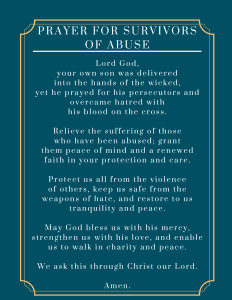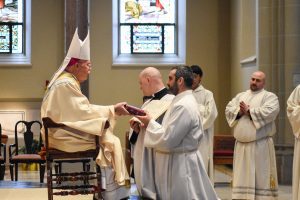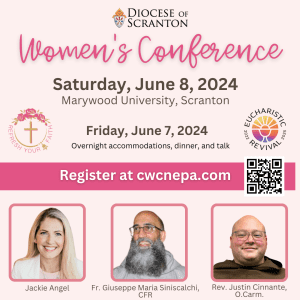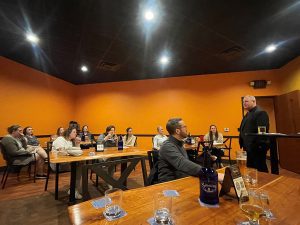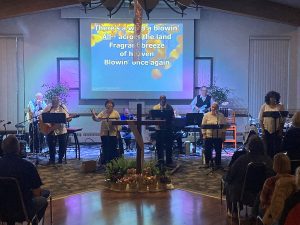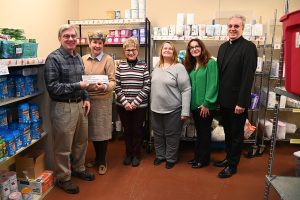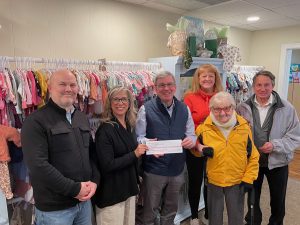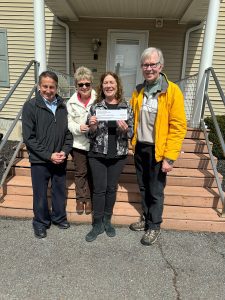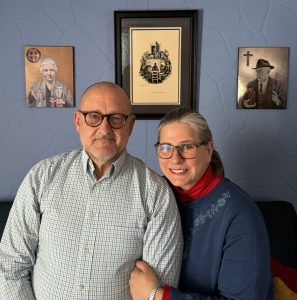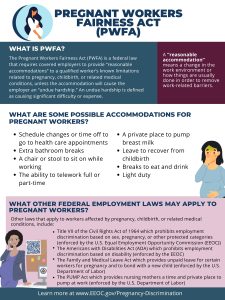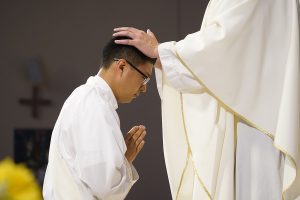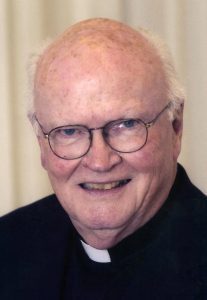SCRANTON – The Most Rev. Joseph C. Bambera, Bishop of Scranton, celebrated Mass April 11, 2024, Thursday of the Second Week of Easter, at the Cathedral of Saint Peter, with the specific intention of praying for survivors of child sexual abuse.
The Diocese of Scranton’s annual Healing Mass for Survivors of Abuse takes place each April to coincide with National Child Abuse Prevention Month.
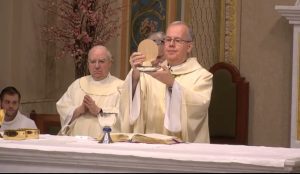
“In these days, we pray for God’s healing and peace for all survivors of sexual abuse and particularly for those abused by members of the clergy and trusted Church workers,” Bishop Bambera said. “While we have celebrated this Mass in a very public way for seven years now, it is vital that we continue to pray for survivors of abuse.”
During his homily, Bishop Bambera explained that Pope Francis has established the Pontifical Commission for the Protection of Minors to combat clergy abuse and has encouraged them to help make the Church a safer environment for both minors and vulnerable adults.
“None of us will ever know the depth of pain that survivors endure,” the bishop said. “Yet, in courageously sharing their pain, so many survivors with whom I’ve spoken over the years have taught me a great lesson. You’ve taught me why this Mass is so significant. You’ve taught me that if we are truly intent upon creating safe environments for its children and all of God’s people – the Church, and especially Church leaders – must never forget or allow time to numb us to the pain that was so willfully inflicted on innocent lives by those who postured themselves as God’s representatives and ministers of his love and mercy.”
Erin McGrady, LPC, Safe Environment Coordinator for the Diocese of Scranton, attended the Mass in her effort to support survivors.
“It is important to continue to have this Mass because we must remember our history that led to the safeguards we have in place,” McGrady said. “The Diocese must continue to remain vigilant in our practices to safeguard children. It is so important to educate our children and adults on signs to notice, what to do, and who to tell, to prevent child sexual abuse.”
During the 2023-24 school year, the Diocese of Scranton has already trained almost 6,000 children on the topic of Safe Adults and Respecting Boundaries.
“Abuse is happening all around the world in various locations. If we can educate others on how to prevent it, we can make all places safer for our children,” McGrady added. “The Catholic Church is leading the way on responding to abuse with practices in place to include education, background checks, and removing abusers from ministry, to create safer environments for our children to grow in their faith.”
While it is a Bishop’s pastoral responsibility to provide utmost care in fostering the protection of minors through his actions and through established Diocesan Safe Environment initiatives, everyone in the community has a role to play in protecting children from abuse. The Diocese of Scranton has a zero-tolerance policy, and works to prevent any instances of abuse, particularly against minors and vulnerable adults.
“As Bishop of this local Church, I continue to apologize for the pain that has been inflicted upon far too many of you by leaders of our Church. In this season of hope and new life, I once again ask for forgiveness for the countless numbers of you who have suffered so much,” Bishop Bambera said. “I pledge to continue to do all within my power to keep our churches, our parishes, and our schools safe for our children and for all of our people to worship, pray, learn and to grow in their faith.”
The Diocese of Scranton annually undergoes a comprehensive audit by the U.S. Conference of Catholic Bishops Secretariat of Child and Youth Protection to ensure that the Diocese is in compliance with current directives. The Diocese has passed all audits of its child protection procedures, policies and records every year since the policy was adopted in 2002.
For more information on the Diocese of Scranton’s Safe Environment Program, or for a full overview of all policies and protocols, visit dioceseofscranton.org.
To report sexual abuse by a member of clergy, an employee or volunteer of the Catholic Church, contact your local police department or county District Attorney, and Mary Beth Pacuska, Victim Assistance Coordinator for the Diocese of Scranton at (570) 862-7551.
To report sexual misconduct by a bishop or eparch, contact the national reporting website or reporting hotline at ReportBishopAbuse.org, or by calling 1-800-276-1562.
